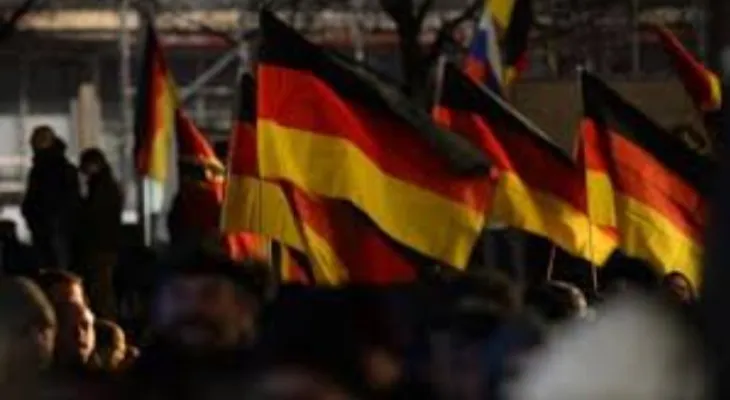Search here
Newspaper
Search here

Arab Canada News
News

Published: January 14, 2024
Thousands protested in Germany today against the far right, including Chancellor Olaf Scholz and his Foreign Minister Annalena Baerbock, following the release of a report about a recent meeting of extremists during which the deportation of migrants was discussed.
There were protests in Potsdam, outside Berlin, and at the Brandenburg Gate in the German capital. These protests followed a demonstration on Saturday in the city of Duisburg in the west of the country.
Scholz and his Foreign Minister Annalena Baerbock represent the Potsdam area in the German parliament.
Baerbock said she participated in the demonstration there as one of thousands of local residents "who defend democracy and oppose old and new fascism."
The German electronic investigative news site "Correctiv" last week also spoke about the alleged far-right meeting in last November, which it said was attended by figures from the extremist "Identitarian Movement" and the far-right Alternative for Germany party.
An Austrian citizen named Martin Sellner, who is a prominent member of the "Identitarian Movement," presented his vision for "remigration," a far-right political concept referring to the forced return of non-ethnic or isolated European migrants, including mainly their descendants, to their place of origin.
The mayor of Potsdam, Mike Schubert, also said that "these plans remind us of the darkest chapter in Germany's history."
The Alternative for Germany party sought to distance itself from the meeting, saying it has no organizational or financial ties to the event, noting that members who participated did so in their purely private capacities, and that the party is not responsible for what was discussed there.
The commotion sparked some calls to urge Germany to consider seeking a ban on the Alternative for Germany party, which has steadily moved toward the right wing since its founding in 2013.
Many opponents of the party also rejected the idea, claiming that the banning process would take a long time, that the chances of success are very low, and that it might benefit the party by allowing it to portray itself as a victim.
The Alternative for Germany party currently ranks second in national opinion polls, behind the main center-right opposition stream and ahead of Chancellor Scholz’s unpopular center-left coalition parties.
Germany will hold European Parliament elections next June, followed by state elections in September in three eastern regions where the Alternative for Germany party enjoys wide acceptance. These regions include Brandenburg, where the city of Potsdam is located.
Comments